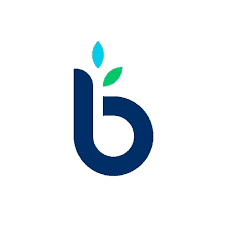
Need help getting funds? Get matched with lenders instantly
Answer some basic questions in less than 3 minutes with no impact to your credit score and compare multiple offers. No commitment, no hassle.
Get Matched💳 Save money on credit card processing with one of our top 5 picks for 2026
Franchisees that need extra funding for their franchise business can look to low-interest SBA loans. Find out which SBA loans are best for franchises and whether you qualify.
Whether you’re starting a new franchise or growing an existing one, an SBA franchise loan can be a helpful tool. If eligible, franchises can enjoy the flexibility and low rates of a small business loan backed by the SBA.
Keep reading to learn more about SBA loans for franchises and if these loans are the right funding option for your business.
Table of Contents
The Small Business Administration is a federal government agency that supports small businesses with resources like educational materials, training, and small business loan programs.
SBA loans are popular with small business owners due to their competitive rates and terms. Many small businesses, including franchises, are eligible for these funding opportunities.
The SBA itself doesn’t distribute funds to businesses. Loans are funded by SBA-approved intermediary lenders like banks, credit unions, and nonprofit organizations. What the SBA does is guarantee a large portion of each loan. By guaranteeing that most of the loan will be paid for even if the borrower defaults, lenders take on less risk and are more likely to fund small businesses.
What this means is that businesses and franchises that can’t find funding elsewhere may be eligible for a low-interest, long-term loan to use for expenses like equipment, business expansion, or even acquiring a new business.
There are three types of SBA loans that work for franchises: the Standard 7(a) loan, the SBA Express loan, and the CDC/504 loan.
The first step in the SBA application process is to determine if your franchise is eligible for a loan. Then, you can determine if you meet all other requirements of the lender and the SBA.
Once your lender has determined that your franchise is eligible for an SBA loan, the application process is the same as it is for other businesses.
If you haven’t found a lender yet, you can use the SBA’s Lender Match service to find an SBA-approved lender in your area. You can also ask for a referral from your financial institution. There are also online brokers and lenders like SmartBiz and Lendio that can help you get an SBA loan.
During the application process, you will be required to provide information about yourself, other owners, and your business. You will need to choose which loan you’d like to receive, choose your borrowing amount, and explain your purpose for the loan.
Your loan package that will be submitted to the SBA will include your application as well as documentation like:
If you are applying for the 504 loan, you will need to provide a letter of intent from the third-party lender that explains why the lender is unable to fund the entire project.
Your lender can provide details on additional documentation requirements.
Your credit score and history will be checked to determine if you qualify for the loan. Additionally, the lender will view your financial documentation to ensure that your business is financially sound and able to repay the loan.
If you meet all requirements, your package will be processed, loan underwriting will begin, and funds will be disbursed. The entire SBA loan application process generally takes 30 to 90 days from start to finish.
There may be circumstances when an SBA franchise loan isn’t right for your business, such as:
Fortunately, there are many alternatives to SBA loans, including:
With a little research, you can find the best franchise loan to meet the unique needs of your business.
SBA loans for franchises can provide the capital you need to grow your business. While the process can be time-consuming and difficult, the low interest rates and long repayment terms can help you take your franchise to the next level.
Want to help shape the future of the Merchant Maverick website? Join our testing and survey community!
By providing feedback on how we can improve, you can earn gift cards and get early access to new features.
 Our expert reviewers found BusinessLoans.com to have a quick and easy application process alongside excellent support and guidance for borrowers.
Start A Quick Application
Our expert reviewers found BusinessLoans.com to have a quick and easy application process alongside excellent support and guidance for borrowers.
Start A Quick Application
Help us to improve by providing some feedback on your experience today.
The vendors that appear on this list were chosen by subject matter experts on the basis of product quality, wide usage and availability, and positive reputation.
Merchant Maverick’s ratings are editorial in nature, and are not aggregated from user reviews. Each staff reviewer at Merchant Maverick is a subject matter expert with experience researching, testing, and evaluating small business software and services. The rating of this company or service is based on the author’s expert opinion and analysis of the product, and assessed and seconded by another subject matter expert on staff before publication. Merchant Maverick’s ratings are not influenced by affiliate partnerships.
Our unbiased reviews and content are supported in part by affiliate partnerships, and we adhere to strict guidelines to preserve editorial integrity. The editorial content on this page is not provided by any of the companies mentioned and has not been reviewed, approved or otherwise endorsed by any of these entities. Opinions expressed here are author’s alone.
 Our expert reviewers found BusinessLoans.com to have a quick and easy application process alongside excellent support and guidance for borrowers.
Start A Quick Application
Our expert reviewers found BusinessLoans.com to have a quick and easy application process alongside excellent support and guidance for borrowers.
Start A Quick Application